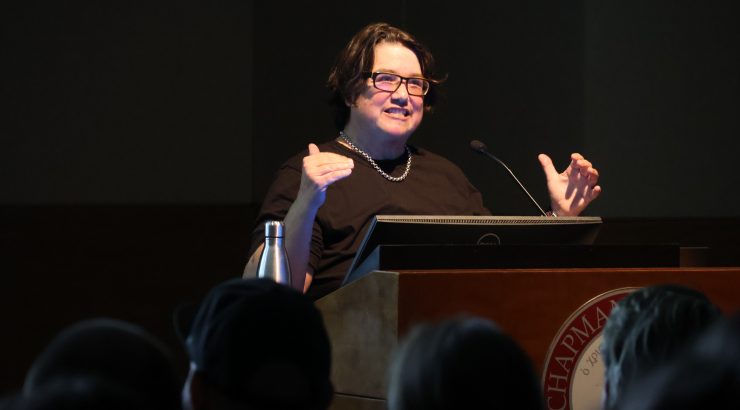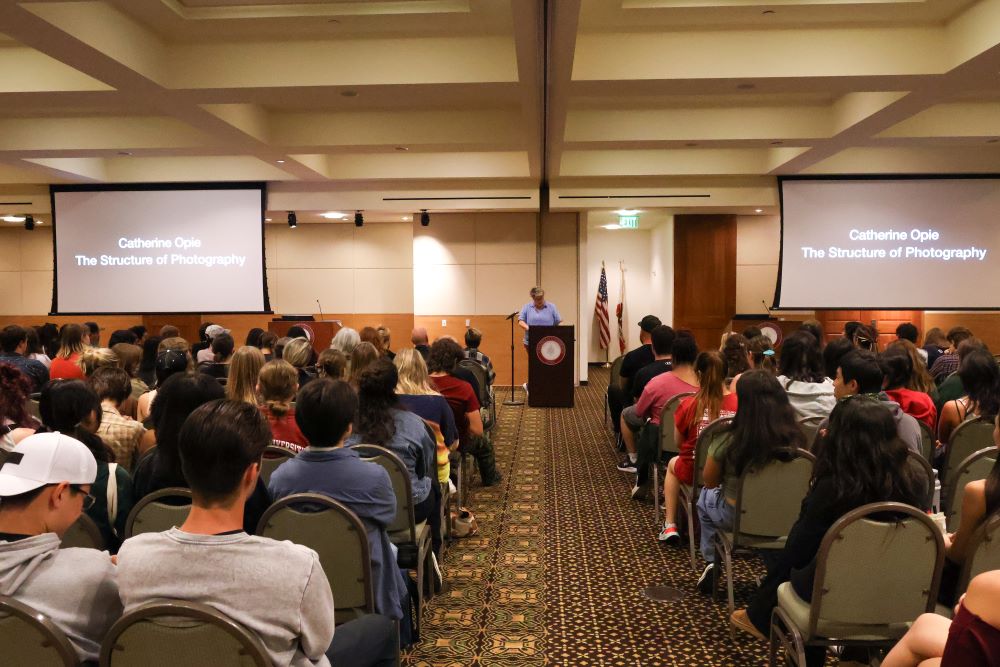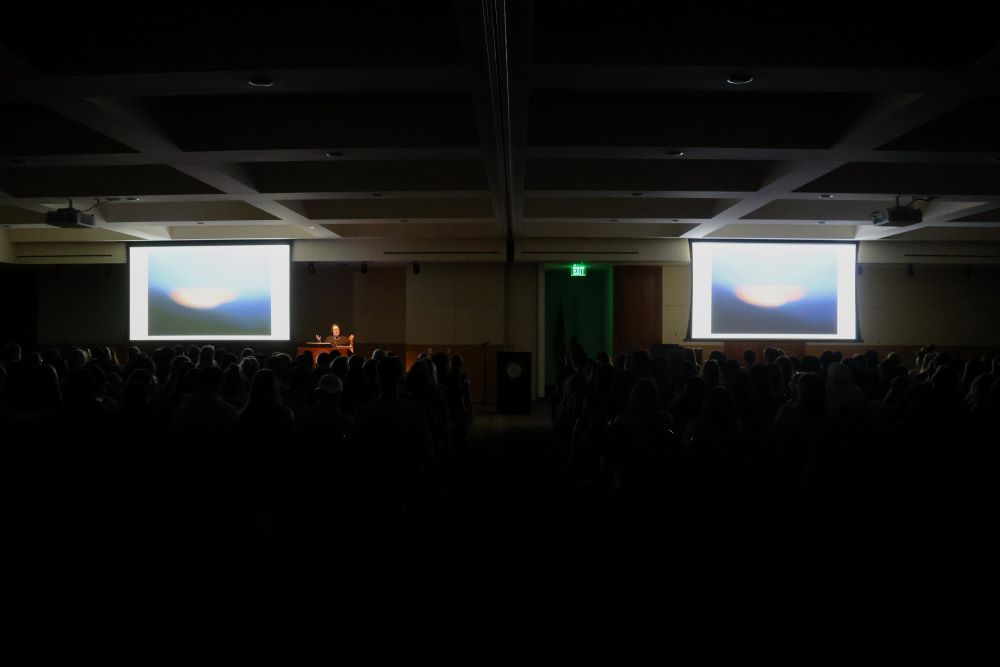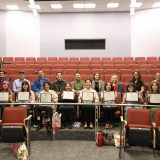
From Our Eyes: Catherine Opie Explores the American Landscape Through the Lens of Photography at Engaging the World Lecture
October 21, 2024

Associate Professor of Photography Julie Shafer, introduces guest speaker Photographer Catherine Opie at a student-packed event. Photo by Ava Brandt (Creative Writing).
This edition of From Our Eyes features Ysabella Rodriguez (Art History). Rodriguez attended The Structure of Photography lecture by event, Photographer Catherine Opie. Rodriguez reflects on the event and what it meant to her.
Earlier this month, photographer and educator Catherine Opie took the audience on a journey through her body of work beginning with the first photograph she took at nine years old. The event was part of Wilkinson College’s Engaging the World: Leading the Conversation on Gender & Sexuality and was also the Art Department’s Bensussen Guest Lecture, a series founded to bring artists and scholars to campus to help students connect with the art world.
Opie is often described as one of the most important photographers of her generation. Hearing her speak about the breadth of her work it is easy to understand why: She has used photography to both document and witness moments that have shaped the fabric of the United States. For this reason, some say her biggest and most enduring theme has been America itself.
She began her career photographing her friends within the LGBTQ community during the height of the AIDS epidemic. In response to the Reagan administration’s inaction and the homophobia she experienced, Opie created portraits that emphasized the humanity and community amongst queer groups across the United States. These intimate photographs brought visibility to a community and history that had been silenced. Later in her career, she began photographing high school football games and players. This series took on new meaning when she discovered that many of the young men she photographed had been drafted and, in many cases, killed in the War in Afghanistan.
In 2019, Opie tied the destruction of swamplands in the southern United States with the Trump administration’s rhetoric of “draining the swamp.” These landscapes became the basis for an exploration of a host of intertwined political and environmental issues, including the politics of ecosystems, gun control, white supremacy, and the rapid rise of water globally.
In 2020 Opie revisited the South to document monuments commemorating controversial historical figures. She gathered perspectives of families living in the South and their feelings towards these figures, such as Robert E. Lee, or movements such as Black Lives Matter. The result, titled monument/monumental, is a powerful exploration of the United States’ struggle to come to terms with the significance of race.

Event speaker Photographer Catherine Opie shared her photographs with the audience. Photo by Ava Brandt (Creative Writing).
Opie’s life-long fascination with landscapes can also be seen in her From Your Shore to My Shore series, one of which is part of the Phyllis and Ross Escalette Permanent Art Collection. This series was taken from a container ship traveling from Korea to Long Beach, CA. During the ten-day journey, Opie took photographs of every sunset and sunrise, playing into stereotypes of the horizon, landscape, and sunrises/sets in photography. The lack of a distinguishing background also creates a sense of universality, in which the horizon becomes a universal thread connecting us all.
Whether photographing high school football games, queer bodies, California surfers, the snowy mountainsides, or political monuments, Catherine Opie has shaped what it means to “fit in.”
“As an art history student at Chapman University, I believe Opie utilizes her talents to educate and call attention to moments in American history that should not be overlooked,” said Rodriguez. “Witnessing these conflicts in her life, Opie has become inspirational and has influenced me to view them from different perspectives to understand every side of the story.”

